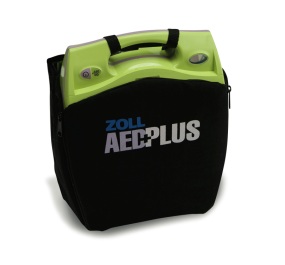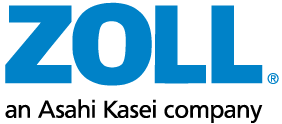AEDs in the Workplace
OSHA encourages employers to provide AEDs in the workplace

With over 30 years in the business of defibrillation, ZOLL® has the experience and products to assist you throughout the automated external defibrillator (AED) implementation process.
The Occupational Safety and Health Administration advises that AEDs be considered for inclusion in workplace first-aid programs:
"An automated external defibrillator (AED) should be considered when selecting first-aid supplies and equipment…With recent advances in technology, automated external defibrillators (AEDs) are now widely available, safe, effective, portable, and easy to use. They provide the critical and necessary treatment for sudden cardiac arrest (SCA)… All worksites are potential candidates for AED programs because of the possibility of SCA and the need for timely defibrillation."
OSHA's Best Practices Guide: Fundamentals of a Workplace First-Aid Program
ZOLL's AED Plus is the only AED in the market with Real CPR Help®:
- Not pushing hard enough? The AED Plus® will tell you when to push harder.
- Pushing hard enough? It will say, "Good compressions."
- Not pushing fast enough? A metronome will lead you to the right rate.
- It will even show you the depth of each compression—in real time.
- Not yet started? The AED Plus will tell you to get started.
- Compressions stopped? It will tell you to continue.
According to OSHA, automated external defibrillators (AEDs) are an important lifesaving technology and may have a role to play in treating workplace cardiac arrest. Information is provided below regarding occupational risk factors and the use of AEDs in the workplace.
- AED Programs Give Lay Rescuers Confidence - Hank Constantine, ZOLL Director of Marketing for AEDs, focuses on the lay rescuer in this ISHN article, and how to give him or her the confidence and courage to act swiftly and decisively. That response depends on preparation and training, which in turn depends on having an AED program in place.
- Occupational Heart Disease. National Institute for Occupational Safety and Health (NIOSH). Addresses many of the hazards associated with occupational risks of coronary heart disease.
- Saving a Life Is as Easy as A-E-D. The American Red Cross offers additional information and training in CPR and the use of AEDs.
